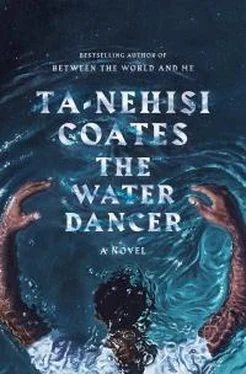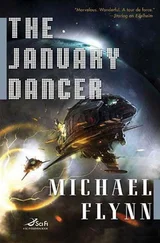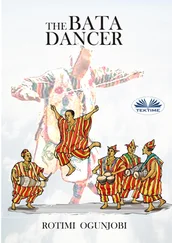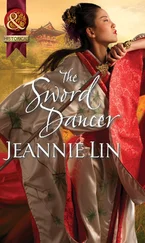The Water Dancer is a work of fiction. Names, characters, places, and incidents are the products of the author’s imagination or are used fictitiously. Any resemblance to actual events, locales, or persons, living or dead, is entirely coincidental.
Copyright © 2019 by BCP Literary, Inc.
All rights reserved.
Published in the United States by One World, an imprint of Random House, a division of Penguin Random House LLC, New York.
ONE WORLD is a registered trademark and its colophon is a trademark of Penguin Random House LLC.
Library of Congress Cataloging-in-Publication Data
Names: Coates, Ta-Nehisi, author.
Title: The water dancer: a novel / Ta-Nehisi Coates.
Description: First edition. | New York: One World, [2019]
Identifiers: LCCN 2019011177 | ISBN 9780399590597 (hardback: acid-free paper) | ISBN 9780593133118 (international) | ISBN 9780399590603 (ebook)
Subjects: LCSH: Slavery—Southern States—History—Fiction. | BISAC: FICTION / African American / Historical. | FICTION / Fantasy / Historical. | GSAFD: Fantasy fiction. | Historical fiction.
Classification: LCC PS3603.O17 W38 2019 | DDC 813/.6—dc23
LC record available at lccn.loc.gov/2019011177
Ebook ISBN 9780399590603
randomhousebooks.com
Book design by Caroline Cunningham, adapted for ebook
Cover design: Greg Mollica
Cover art: Calida Garcia Rawles
v5.4
ep
Contents
Cover
Title Page
Copyright
Part I
Chapter 1
Chapter 2
Chapter 3
Chapter 4
Chapter 5
Chapter 6
Chapter 7
Chapter 8
Chapter 9
Part II
Chapter 10
Chapter 11
Chapter 12
Chapter 13
Chapter 14
Chapter 15
Chapter 16
Chapter 17
Chapter 18
Chapter 19
Chapter 20
Chapter 21
Chapter 22
Chapter 23
Chapter 24
Chapter 25
Chapter 26
Chapter 27
Part III
Chapter 28
Chapter 29
Chapter 30
Chapter 31
Chapter 32
Chapter 33
Chapter 34
Dedication
Author’s Note
By Ta-Nehisi Coates
About the Author
I.
My part has been to tell the story of the slave. The story of the master never wanted for narrators.
FREDERICK DOUGLASS
1
AND I COULD ONLY have seen her there on the stone bridge, a dancer wreathed in ghostly blue, because that was the way they would have taken her back when I was young, back when the Virginia earth was still red as brick and red with life, and though there were other bridges spanning the river Goose, they would have bound her and brought her across this one, because this was the bridge that fed into the turnpike that twisted its way through the green hills and down the valley before bending in one direction, and that direction was south.
I had always avoided that bridge, for it was stained with the remembrance of the mothers, uncles, and cousins gone Natchez-way. But knowing now the awesome power of memory, how it can open a blue door from one world to another, how it can move us from mountains to meadows, from green woods to fields caked in snow, knowing now that memory can fold the land like cloth, and knowing, too, how I had pushed my memory of her into the “down there” of my mind, how I forgot, but did not forget, I know now that this story, this Conduction, had to begin there on that fantastic bridge between the land of the living and the land of the lost.
And she was patting juba on the bridge, an earthen jar on her head, a great mist rising from the river below nipping at her bare heels, which pounded the cobblestones, causing her necklace of shells to shake. The earthen jar did not move; it seemed almost a part of her, so that no matter her high knees, no matter her dips and bends, her splaying arms, the jar stayed fixed on her head like a crown. And seeing this incredible feat, I knew that the woman patting juba, wreathed in ghostly blue, was my mother.
No one else saw her—not Maynard, who was then in the back of the new Millennium chaise, not the fancy girl who held him rapt with her wiles, and, most strange, not the horse, though I had been told that horses had a nose for things that stray out from other worlds and stumble into ours. No, only I saw her from the driver’s seat of the chaise, and she was just as they’d described her, just as they’d said she’d been in the olden days when she would leap into a circle of all my people—Aunt Emma, Young P, Honas, and Uncle John—and they would clap, pound their chests, and slap their knees, urging her on in double time, and she would stomp the dirt floor hard, as if crushing a crawling thing under her heel, and bend at the hips and bow, then twist and wind her bent knees in union with her hands, the earthen jar still on her head. My mother was the best dancer at Lockless, that is what they told me, and I remembered this because she’d gifted me with none of it, but more I remembered because it was dancing that brought her to the attention of my father, and thus had brought me to be. And more than that, I remembered because I remembered everything—everything, it seemed, except her.
It was autumn now, the season when the races came south. That afternoon Maynard had scored on a long-shot thoroughbred, and thought this might, at last, win the esteem of Virginia Quality he sought. But when he made the circuit around the great town square, leaning back, way back in the chaise and grinning large, the men of society turned their backs to him and puffed on their cigars. There were no salutes. He was what he would always be—Maynard the Goof, Maynard the Lame, Maynard the Fool, the rotten apple who’d fallen many miles from the tree. He fumed and had me drive to the old house at the edge of our town, Starfall, where he purchased himself a night with a fancy, and had the bright notion to bring her back to the big house at Lockless, and, most fatefully, in a sudden bout of shame, insisted on leaving the back way out of town, down Dumb Silk Road, until it connected to that old turnpike, which led us back to the bank of the river Goose.
A cold steady rain fell as I drove, the water dripping down from the brim of my hat, puddling on my trousers. I could hear Maynard in the back, with all his games, putting his carnal boasts upon the fancy. I was pushing the horse as hard as I could, because all I wanted was to be home and free of Maynard’s voice, though I could never, in this life, be free of him. Maynard who held my chain. Maynard, my brother who was made my master. And I was trying all I could to not hear, searching for distraction—memories of corn-shucking or young games of blind man’s bluff. What I remember is how those distractions never came, but instead there was a sudden silence, erasing not just Maynard’s voice, but all the small sounds of the world around. And now, peering into the pigeonhole of my mind, what I found were remembrances of the lost—men holding strong on watch-night, and women taking their last tour of the apple orchards, spinsters remanding their own gardens to others, old codgers cursing the great house of Lockless. Legions of the lost, brought across that baleful bridge, legions embodied in my dancing mother.
I yanked at the reins but it was too late. We barreled right through and what happened next shook forever my sense of a cosmic order. But I was there and saw it happen, and have since seen a great many things that expose the ends of our knowledge and how much more lies beyond it.
The road beneath the wheels disappeared, and the whole of the bridge fell away, and for a moment I felt myself floating on, or maybe in, the blue light. And it was warm there, and I remember that brief warmth because just as suddenly as I floated out, I was in the water, under the water, and even as I tell you this now, I feel myself back there again, in the icy bite of that river Goose, the water rushing into me, and that particular burning agony that comes only to the drowning.
Читать дальше












